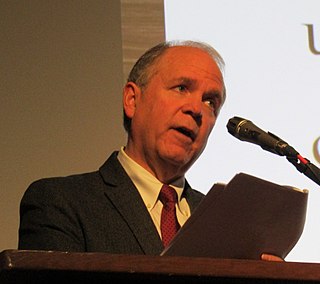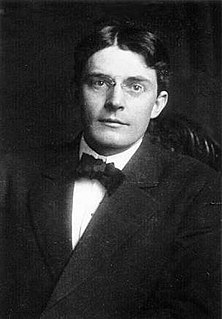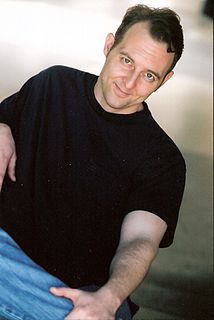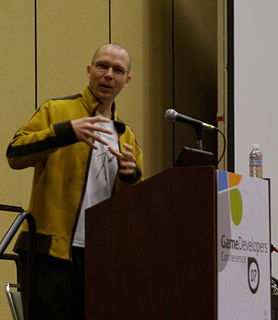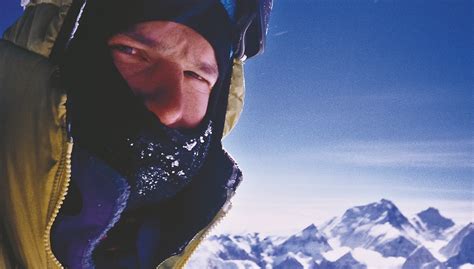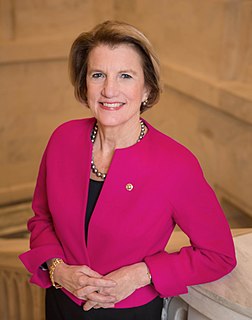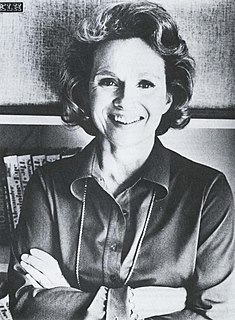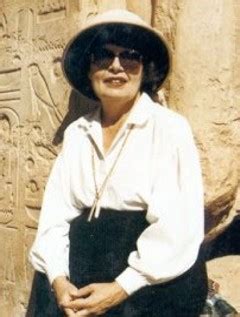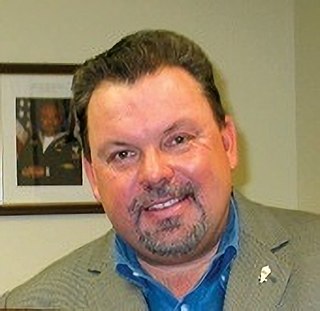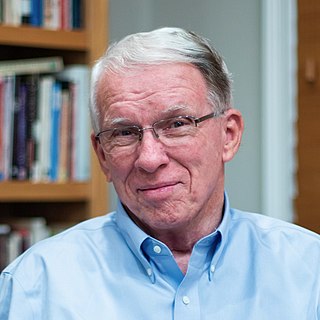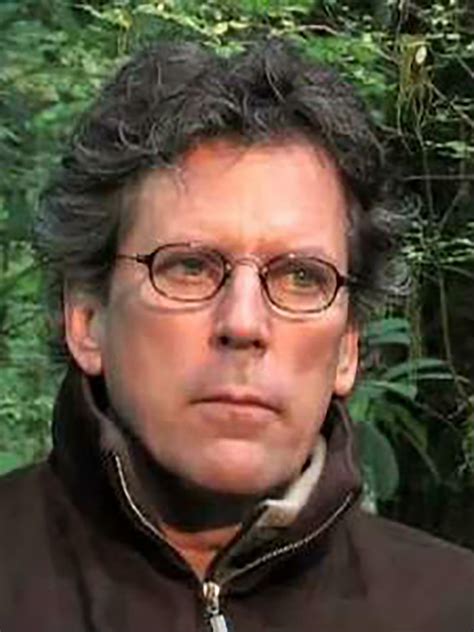Top 1095 Random Quotes & Sayings - Page 18
Explore popular Random quotes.
Last updated on April 19, 2025.
I used to always throw in random questions. I'd have to ask about artist's single and their writing process, which I know is every artist's most-hated question, like, "Well what was ,your process?" And it's. like, "Well, I wrote this album." And then at the end I would throw in, like, "So, Seinfeld or Simpsons?" and they'd be so thrown, because everything else could be autopilot. All my greatest moments were from the most sporadic questions.
HOW do you define a word without concrete meaning? To each his own, the saying goes, so WHY push to attain an ideal state of being that no two random people will agree is WHERE you want to be? Faultless. Finished. Incomparable. People can never be these, and anyway, WHEN did creating a flawless facade become a more vital goal than learning to love the person WHO lives inside your skin? The outside belongs to others. Only you should decide for you - WHAT is perfect.
Nature designed with a random set of genes and circumstances in which we were born. To be happy, we have to accept it and make the most of nature’s design. Are you? Goals will help you do that. I must add, don’t just have career or academic goals. Set goals to give you a balanced, successful life. I use the word balanced before successful. Balanced means ensuring your health, relationships, mental peace are all in good order.
Sickness is real. However, I've seen too many people suffering with sicknesses not of their own choosing to say glibly that all sickness is caused by sin. On the other hand, to believe that sin does not exist and that all of our trials and tribulations have naturalistic explanations or are simply random events may cause us to miss the very solution we seek. Elder Jeffrey R. Holland observed that "too many people . . . want to sin and call it psychology."
Almost every time i saw you, you were with him. But one day, you walked up to the building alone. I was holding the door for several girls in front of you, and i waited for you to catch up. When you reached me, you look pleased, and a little surprised. Unlike the others, you didn't expect the door to be held for you by some random guy. You smiled up at me and said, 'Thank you.' That was the last straw. I prayed you 'd never come to a session, and not with him. I didn't want you to know i was the tutor.
Senator, we are groping for understanding, the knowledge you assume I possess doesn't exist' - 'The only effective regulation lies in the propensity of customers to choose alternatives, of investors to move their funds elsewhere and of labour to acquire technical skills' - 'Senator, if I seem clear to you, you must have misunderstood me' - 'Unfortunately, Senator, nobody knows where the next innovative idea is coming from. Political decisions are never random and will always lose out to innovative alternatives
But I would like to reach the point where I could cut up an illustrated magazine at random and see to it that the parts would each become a painting. I cannot properly explain it right now. Already now I am searching for the most boring and irrelevant photo material that I can find. And I would like to get to the point soon where this determined irrelevance could be retained, in favor of something that would be covered up otherwise by artifice.
Challenger was lost because NASA came to believe its own propaganda. The agency's deeply impacted cultural hubris had it that technology-engineering-would always triumph over random disaster if certain rules were followed. The engineers-turned-technocrats could not bring themselves to accept the psychology of machines with abandoning the core principle of their own faith: equations, geometry, and repetition-physical law, precision design, and testing-must defy chaos.
That’s the problem with all of this. No matter how hard I try, I can’t make it perfect. I can’t keep it in a bottle, can’t ignore reality. Chemicals are involved, the kind scientists try to synthesize and put into pill form, and they’re making tremendous advances every day. They’re winning the war against love. It’s probably inevitable now. There are only two ways to see the world: either no one and nothing is connected to anything, or we are all a random series of carbon molecules connected to each other. Tell me if there’s room for love in either of those scenarios.
As you begin to feel this enormous shift of consciousness, called multisensory perception, emerging in your awareness, you begin to reorient yourself. It's a reorientation that occurs toward yourself as more than a mind and a body; it's a reorientation that occurs toward others; toward your life as meaningful, rather than predetermined. It's a reorientation that occurs toward the universe as alive, wise and compassionate, instead of inert (which means dead) and random.
When we were small, Rose and I used to play a game called connect the dots. I loved it. I loved drawing a line from dot number 1 to dot number 2 and so on. Most of all, I loved the moment when the chaotic sprinkle of dots resolved itself into a picture. That's what stories do. They connect the random dots of life into a picture. But it's all an illusion. Just try to connect the dots of life. You'll end up with a lunatic scribble.
But the indeterminate future is somehow one in which probability and statistics are the dominant modality for making sense of the world. Bell curves and random walks define what the future is going to look like. The standard pedagogical argument is that high schools should get rid of calculus and replace it with statistics, which is really important and actually useful. There has been a powerful shift toward the idea that statistical ways of thinking are going to drive the future.
Unless, of course, there's no such thing as chance;...in which case, we should either-optimistically-get up and cheer, because if everything is planned in advance, then we all have a meaning and are spared the terror of knowing ourselves to be random, without a why; or else, of course, we might-as pessimists-give up right here and now, understanding the futility of thought decision action, since nothing we think makes any difference anyway, things will be as they will. Where, then, is optimism? In fate or in chaos?
When you lose the story that's running like a golden stream underneath all the other stories, you're left with the idea that the Bible is a collection of random-seeming stories about various Bible characters that we're supposed to learn lessons from - almost like an Aesop's Fables. And a book of rules that God wants us to keep so he will love us. And we lose the glorious truth of the Bible that we were loved before even the beginning of time. That God had a plan. That no matter what, he would never stop loving us.
Edison was by far the most successful and, probably, the last exponent of the purely empirical method of investigation. Everything he achieved was the result of persistent trials and experiments often performed at random but always attesting extraordinary vigor and resource. Starting from a few known elements, he would make their combinations and permutations, tabulate them and run through the whole list, completing test after test with incredible rapidity until he obtained a clue. His mind was dominated by one idea, to leave no stone unturned, to exhaust every possibility.
You know, I really think that when God puts together families, he sticks his finger into the white pages and selects a group of people at random and then says to them all, 'Hey! You're going to spend the next seventy years together, even though you have nothing in common and don't even like each other. And, should you not feel yourself caring about any of this group of strangers, even for a second, you will just feel dreadful
But neither life nor happiness can be achieved by the pursuit of irrational whims. Just as man is free to attempt to survive in any random manner, but will perish unless he lives as his nature requires, so he is free to seek his happiness in any mindless fraud, but the torture of frustration is all he will find, unless he seeks the happiness proper to man. The purpose of morality is to teach you, not to suffer and die, but to enjoy yourself and live.
Give me a dozen healthy infants, well-formed, and my own specified world to bring them up in and I'll guarantee to take any one at random and train him to become any type of specialist I might select--doctor, lawyer, artist, merchant-chief, and, yes, even beggarman and thief, regardless of his talents, penchants, tendencies, abilities, vocations, and race of his ancestors. I am going beyond my facts and I admit it, but so have the advocates of the contrary and they have been doing it for many thousands of years.
But many, many stories were told; from what could be gathered, all fifty of the mine's inhabitants had reacted on each other, two by two, as in combinatorial analysis, that is to say, everyone with all the others, and especially every man with all the women, old maids or married, and every woman with all the men. All I had to do was to select two names at random, better if different sex, and ask a third person, "What happened with those two?" and lo and behold, a splendid story was unfolded for me, since everyone knew the story of everyone else.
If you think reading a book is hard, you should try writing one. Because it's even harder. It's still not as hard as writing a game, though. If you discount the purely visual pop-up parts, a book is made almost entirely of words. As a novelist, you just need to think of a few decent strings of words and then fill the other 98% of the book with more or less random descriptions of things and exclamation points.
Isabell, she treads so lightly, floating in her gipsy dresses
Even as her words cut deep, I can't deny the truth in them
On the phone, she talks a lot, and me, I listen hopelessly
So directionless, I head into oblivion
And then I decide to give another random memory
To remind her of the first time we sang out to the sea
Oh Isabell, you always understood me
Please Isabell, forgive me now
Dwarfs were not a naturally religious species, but in a world where pit props could crack without warning and pockets of fire damp could suddenly explode they'd seen the need for gods as the sort of supernatural equivalent of a hard hat. Besides, when you hit your thumb with an eight-pound hammer it's nice to be able to blaspheme. It takes a very special and strong-minded kind of atheist to jump up and down with their hand clasped under their other armpit and shout, "Oh, random-fluctuations-in-the-space-time-continuum!" or "Aaargh, primitive-and-outmoded-concept on a crutch!
If you flip a coin three times and it lands on heads each time, it’s probably chance. If you flip it a hundred times and it lands on heads each time, you can be pretty sure the coin has heads on both sides. That’s the concept behind statistical significance—it’s the odds that the correlation (or other finding) is real, that it isn’t just random chance.
I got to meet a lot of cool people [on the Voice], and my favorite part about the experience was getting to sit around and do little jam sessions in the hotel. We were pretty much in lockdown at the hotel in downtown Los Angeles, and there wasn't much to do. It was interesting to be in a room with someone that was a rapper next to me, a country artist, then you have someone playing a song on the keyboard, and it was just really cool as just a random ensemble.
The absurdist is concerned with the search for meaning in the Universe. He believes this search to be meaningless--hence the disintegration of plot, character, and language in absurdist drama. Order is a falsehood that we, God, those who came before us, have imposed on a random universe. However, the absurdist is confronted with a curious paradox: though he believes the Universe to be meaningless, he cannot abandon the search for meaning--or he will die.
The Universe was a silly place at best...but the least likely explanation for it was the no-explanation of random chance, the conceit that abstract somethings 'just happened' to be atoms that 'just happened' to get together in ways which 'just happened' to look like consistent laws and some configurations 'just happened' to possess self-awareness and that two 'just happened' to be the Man from Mars and a bald-headed old coot with Jubal inside.
What if you believed that everything in life was like a prize? What if you thought of the world as a big random drawing, and you were always winning things, the world offering them up with a big grin, like an emcee's: Here you go, Hollis. Here is a motorcycle. Here is a little boy who loves you. Here is a weird experience, here is something bad that you should mull over because it will make you a better person. What if you could think that life was this free vacation you'd won, and you won just because you happened to be alive?
I don't believe that if you do good, good things will happen. Everything is completely accidental and random. Sometimes bad things happen to very good people and sometimes good things happen to bad people. But at least if you try to do good things, then you're spending your time doing something worthwhile.
I imagine John Watson thinks love’s a mystery to me, but the chemistry is incredibly simple and very destructive. When we first met, you told me that a disguise is always a self portrait, how true of you, the combination to your safe – your measurements. But this is far more intimate. This is your heart, and you should never let it rule your head. You could have chosen any random number and walked out of here today with everything you worked for. But you just couldn’t resist it, could you? I’ve always assumed that love is a dangerous disadvantage. Thank you for the final proof.
Cities are never random. No matter how chaotic they might seem, everything about them grows out of a need to solve a problem. In fact, a city is nothing more than a solution to a problem, that in turn creates more problems that need more solutions, until towers rise, roads widen, bridges are built, and millions of people are caught up in a mad race to feed the problem-solving, problem-creating frenzy.
We need merely understand that the evolutionary process is neither random nor determined but creative. It follows the general pattern of all creativity. While there is no way of fully understanding the origin moment of the universe we can appreciate the direction of evolution in its larger arc of development as moving from lesser to great complexity in structure and from lesser to greater modes of consciousness. We can also understand the governing principles of evolution in terms of its three movements toward differentiation, inner spontaneity, and comprehensive bonding.
In the final analysis the hierarchic pattern is nothing like the straightforward witness for organic evolution that is commonly assumed. There are facets of the hierarchy which do not flow naturally from any sort of random undirected evolutionary process. If the hierarchy suggests any model of nature it is typology and not evolution. How much easier it would be to argue the case for evolution if all nature's divisions were blurred and indistinct, if the systema naturalae was largely made up of overlapping classes indicative of sequence and continuity.
Listen and learn: you need fourteen characters, minimum. Use random letters, not words. Here’s a tip: think of a sentence, and use the first letter in each of those words. Mix it up between upper and lower case. Then pick two numbers that mean something to you – not dates – and stick them somewhere between the letters. Put a punctuation mark at the beginning of the password and then a symbol, like a dollar sign, at the end.
I took to writing as my medicine to help me stay afloat in acting career journey. I wrote about me breaking hearts, and my heart being broken. I wrote about my views whether they were liberal or conservative. I wrote about everything. I wrote about my life. When I did not have paper coming in as green backs, I'd use random pieces of paper for stories. It was like, I got no money, but I have paper to write. So I wrote.
Bill Clinton, who, to his credit, has established a clear and consistent foreign policy, which is as follows: Whenever the president of the United States gets anywhere near any foreign head of state, living or dead, he gives that leader a big old hug. This has proven to be an effective way to get foreign leaders to do what we want: Many heads of state are willing to sign any random document that President Clinton thrusts in front of them, without reading it, just so he will stop embracing them.
I hadn't thought about the balance in mood. You see that we did it in alphabetical order, so if there's any kind of shape, or any kind of flow, it's random. Gender...we didn't think much about it. It was sort of interesting to see that women often were choosing women and men often were choosing men. And sometimes they wouldn't and that was fun. I didn't know that I would be excited by that, until I saw it happen.
Cocoa-buttered girls were stretched out on the public beach in apparently random alignments, but maybe if a weather satellite zoomed in on one of those bodies and then zoomed back out, the photos would show the curving beach itself was another woman, a fractal image made up of the particulate sunbathers. All the beaches pressed together might form female landmasses, female continents, female planets and galaxies. No wonder men felt tense.
I don't need to praise anything so justly famous as Frost's observation of and empathy with everything in Nature from a hornet to a hillside; and he has observed his own nature, one person's random or consequential chains of thoughts and feelings and perceptions, quite as well. (And this person, in the poems, is not the "alienated artist" cut off from everybody who isn't, yum-yum, another alienated artist; he is someone like normal people only more so - a normal person in the less common and more important sense of normal.)
There should be a law that no ordinary newspaper should be allowed to write about art. The harm they do by their foolish and random writing it would be impossible to overestimate--not to the artist but to the public.... Without them we would judge a man simply by his work; but at present the newspapers are trying hard to induce the public to judge a sculptor, for instance, never by his statues but by the way he treats his wife; a painter by the amount of his income and a poet by the colour of his necktie.
There are lots of random blog posters on places like Gamespot or NeoGAF or whatever who show a clearer understanding of Braid than people who are all, "I'm all about games, and narrative and meaning, and I write a blog just to tell you about how I analyze all these things." Those people have the same hit rate as your general forum poster. So that's given me a cynical response to that whole community, which is just that, "Guys, are you sure you're qualified to do this?" And that sounds asshole-ish, and mean and snarky, but that's just how I'm feeling right now.
Historically, many of the great names in alpine climbing seemed to have just gone climbing as training. In fact, the model alpinist has often portrayed himself in literature as a half-crazed nonconformist, living life on the edge every moment he's sober enough to climb. It is true that amazing feats of skill and daring have been accomplished using this rather random approach. For some climbers that "life on the edge" approach may be the only way they can accomplish these feats, but there are far better methods to prepare for the challenges of alpine climbing.
Stuff Happens.’ That’s the G-rated version. That’s a bumper sticker that only a straight white upper middle class male could have made. Because anyone who isn’t straight, anyone who isn’t male, anyone who isn’t white, anyone who isn’t upper middle class knows that stuff doesn’t just happen. Stuff gets done by people to people. Nothing is a coincidence. Nothing is random. This isn’t osmosis. And so we act as if it’s this passive thing, but yet that’s not the case.
There is some pressure when you are a woman doing what I do that you must support all other women unconditionally, no matter what they're projecting, or writing, or producing, or putting forth as their art. I think that's equally arbitrary and random and unfair, and kind of sexist. The secretly sexist way. I have really high standards for what I think is funny. I have that for everything, and I think it would be disingenuous of me to blanket-ly love everything a woman has produced simply to make a statement that we're all in this together.
What I "discovered" was that happiness is not something that happens. It is not the result of good fortune or random chance. It is not something that money can buy or power command. It does not depend on outside events, but, rather, on how we interpret them. Happiness, in fact, is a condition that must be prepared for, cultivated, and defended privately by each person. People who learn to control inner experience will be able to determine the quality of their lives, which is as close as any of us can come to being happy.
Violence against women is not random or anonymous. In West Virginia, 88 percent of sexual-assault victims already know their attacker. In my hometown, Alicia McCormick, an advocate for our domestic-violence shelter at the YWCA, was killed in her home by a man doing handiwork in her apartment complex. That one of my greatest advocates could fall victim to something she fought against her whole life was a tragedy that moved me to action.
The Federal Building's large Ceremonial Courtroom, reserved for show trials, is veneered in executive teak. Bench, counsel tables, jury boxes, entrances, and exits -- all are as formally arranged as an Elizabethan stage. Only the drama is shapeless, at least to those of us who have never seen a trial before. We see only random movements, sequences, comings and goings, no form or agenda apparent. To us the action is less like watching a play than watching an aquarium.
That life - whatever else it is - is short. That fate is cruel but maybe not random. That Nature (meaning Death) always wins but that doesn’t mean we have to bow and grovel to it. That maybe even if we’re not always so glad to be here, it’s our task to immerse ourselves anyway: wade straight through it, right through the cesspool, while keeping eyes and hearts open. And in the midst of our dying, as we rise from the organic and sink back ignominiously into the organic, it is a glory and a privilege to love what Death doesn’t touch.
Paul's One Way Out is a fresh, intelligently arranged, and satisfyingly complete telling of the lengthy (and unlikely) history of the group that almost singlehandedly brought rock up to a level of jazz-like sophistication and virtuosity, introducing it as a medium worthy of the soloist's art. Oral histories can be tricky things: either penetrating, delivering information and backstories that get to the heart of how timeless music was made. Or too often, they lie flat on the page, a random retelling of repeated facts and reheated yarns. I'm happy to say that Paul's is in that first category.
Perhaps if there is anything remotely interesting about my writing style, it is this: more often than not I have no idea what the story is going to be about. Sometimes I have a fuzzy vision, or a glimpse of one scene, or a character. But mostly all I have is a random first sentence, and I follow it to see where it might go. For me, writing is the process of discovery, of gradually figuring out what happens in the story and how it ends, that makes writing an interesting process for me.
Who are we really? Combinations of common chemicals that perform mechanical actions for a few years before crumbling back into the original components? Fresh new souls, drawn at random for some celestial cupboard where God keeps an unending supply?Or the same soul, immortal and eternal, refurbished and reused through endless lives, by that thrifty Housekeeper? In Her wisdom and benevolence She wipes off the memory slates, as part of the cleaning process, because if we could remember all the things we have experienced in earlier lives, we might object to risking it again.
Whether it's a pebble in a riverbed or a soaring mountain peak, I see everything in the world as the handiwork of the Lord. When I paint, I try to represent the beauty of God's creation in my art. Many modern painters see the world as a jumble of random lines and shapes with no divine beauty or order, and their works reflect their viewpoint. Because I see God's peacefulness, serenity, and contentment, I work to capture those feelings on the canvas. My vision of God defines my vision of the world.
Shattered dreams are never random. They are always a piece in a larger puzzle, a chapter in a larger story. The Holy Spirit uses the pain of shattered dreams to help us discover our desire for God, to help us begin dreaming the highest dream. They are ordained opportunities for the Spirit to awaken, then to satisfy our highest dream.
When confronted with a demand that the universe have a cause, infidels have usually pointed out that God was not much of an explanation. This is true enough, but not really a positive argument. After mechanistic explanation became popular, infidels liked to restrict causality to the chain of causes in an eternal material universe, pointing out that no supernatural cause was then necessary. Plausible, but still rather defensive. Today's skeptic can do better. In all likelihood, the universe is uncaused. It is random. It just is.
One day, I stopped hating. I ceased all meaningless activity. I completed the circle. I Set my sights straight. Like an Arrow I flew. I stopped acting. I got tired of playing with you. Random violence and destruction Because my reason for living, my out, My excuse. What is your excuse? Destruction. Without hate, without fear, Without judgement. I am no better Than you. No-one knows this better Than I do. I just got tired of playing Parlor Games.
Basketball is an intricate, high-speed game filled with split-second, spontaneous decisions. But that spontaneity is possible only when everyone first engages in hours of highly repetitive and structured practice--perfecting their shooting, dribbling, and passing and running plays over and over again--and agrees to play a carefully defined role on the court. This is the critical lesson of improve, too, and it is also a key to understanding a puzzle of Millennium Challenge: spontaneity isn't random.
If I wanted to be free, truly free, I had to choose. There were many points on the compass rose; I had to locate the few that were meant for me. Not any destination picked at random; I had to head for those that summoned me with a passion, for they were the ones that gave meaning to my life. I had to ignore the warnings of those who would tell me why I couldn't do what I wanted to do.
Deep inside I feel that this world we live in is really a big, huge, monumental symphonic orchestra. I believe that in its primordial form all of creation is sound and that it's not just random sound, that it's music. You've heard the expression, music of the spheres? Well, that's a very literal phrase. In the Gospels, we read, "And the Lord God made man from the dust of the earth and breathed into his nostrils the breath of life and man became a living soul." That 'breath of life' to me is the music of life and it permeates every fiber of creation.
The question is: exactly how did life get here? Was it by natural selection and random mutation or was it by something else? Everybody - even Richard Dawkins - sees design in biology. You see this design when you see co-ordinated parts coming together to perform a function - like in a hand. And so it's the appearance of design that everybody's trying to explain. So that if Darwin's theory doesn't explain it we're left with no other explanation than maybe it really was designed. That's essentially the design argument.
At last the cold crept up my spine; at last it filled me from foot to head; at last I grew so chill and desolate that all thought and pain and awareness came to a standstill. I wasn't miserable anymore: I wasn't anything at all. I was a nothing-- a random configuration of molecules. If my heart still beat I didn't know it. I was aware of one thing only; next to the gaping fact called Death, all I knew was nothing, all I did meant nothing, all I felt conveyed nothing. This was no passing thought. It was a gnawing, palpable emptiness more real than the cold.



